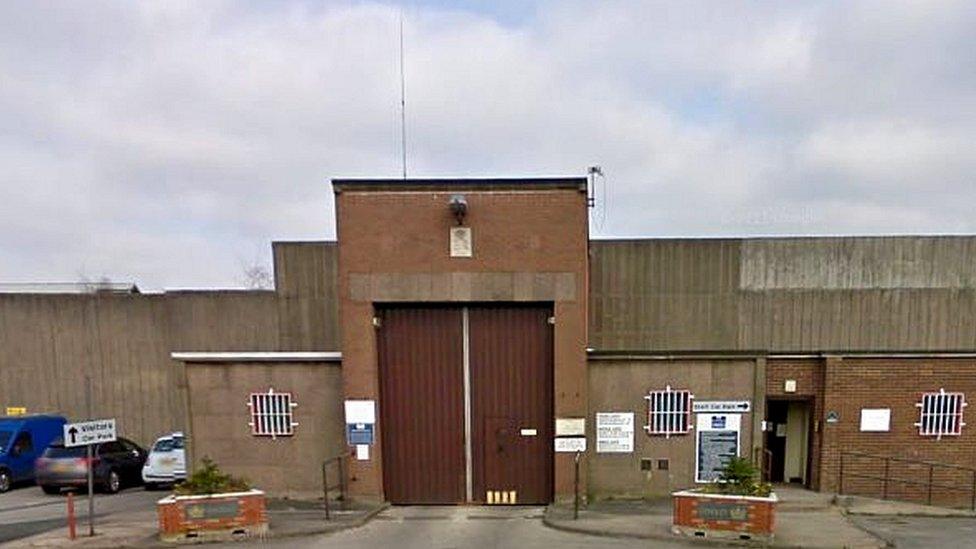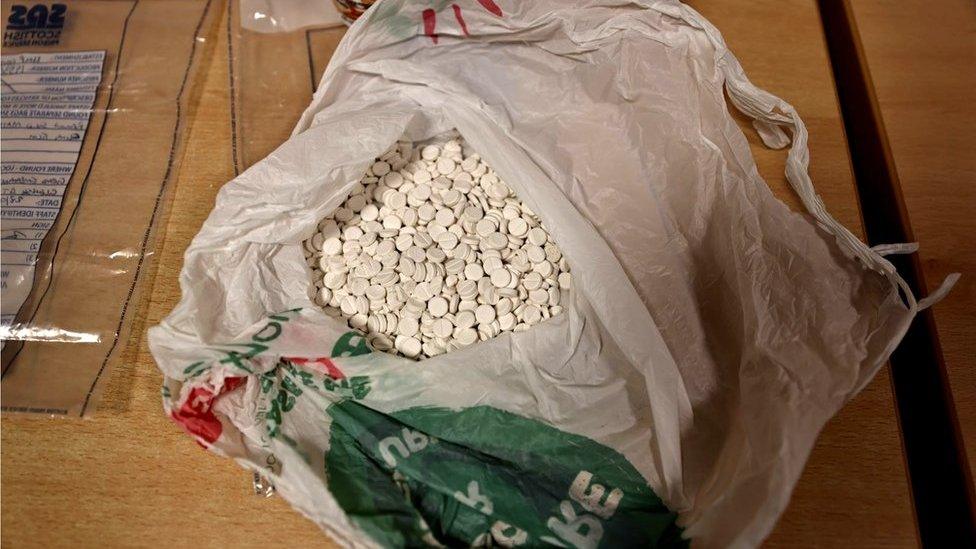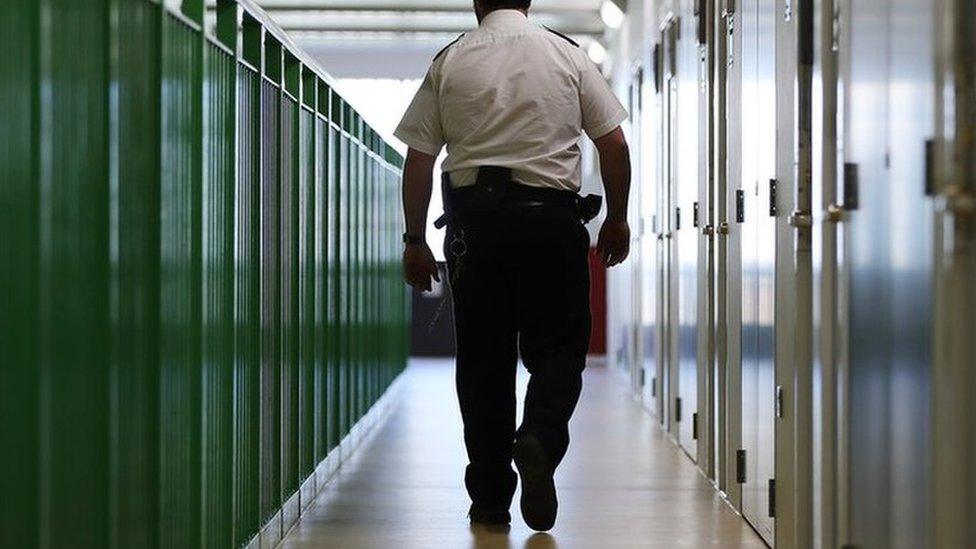'Tsunami' of drugs and violence dominated prison, say inspectors
- Published

Inspectors said Hindley was plagued with drugs and violence
Inexperienced officers struggled to deal with a "tsunami" of drugs and violence at a prison, inspectors found.
Tests found more than half of the 600 prisoners at HMP Hindley near Wigan, were on drugs.
A new report, external by HM Inspectorate of Prisons also found it had high levels of self-harm among prisoners, and serious staffing problems.
The Prison Service said it was boosting training and security with funding at the jail to combat drug use.
The report found Hindley, built in the 1960s, was facing serious staffing challenges, with a high number of prison officers leaving within their first year of employment.
It said the prisoners were "very challenging" and many were linked to organised crime.
During their November and December inspections, the inspectors found Hindley was cramped, with a fifth of inmates living in overcrowded conditions.
'Uphill battle'
Charlie Taylor, HM Chief Inspector of Prisons, said that "Hindley is facing an uphill battle".
"A large minority" of prisoners "had known links to organised crime, so it's unsurprising that the prison had a near tsunami of drugs".
He added: "The situation was so bad that mandatory drug testing found more than half of prisoners were on drugs at any one time."
Mr Taylor added: "Combined with the indolence, boredom and frustration created by a really poor regime, and some very inexperienced staff, it is no surprise that the prison just wasn't safe enough."
'Worrying'
Andrea Coomber, chief executive of the Howard League for Penal Reform, said: "This is a worrying report."
She added that "we see hundreds of men locked inside their cells while drug use, violence and self-harm are rife".
A Prison Service spokesperson said: "We have a zero-tolerance approach to drugs in prison and through our new drug-free units - like the one at HMP Hindley - we are helping the highest-ever proportion of offenders overcome their addiction.
"We are also boosting training for staff to better spot and support those with substance misuse issues while our £100m investment in tough security measures such as X-ray body scanners is stopping more illicit drugs from entering jails in the first place."
'Urgent need'
Campbell Robb, the chief executive of the National Association for the Care and Resettlement of Offenders (NACRO), said the situation at Hindley was worryingly do familiar".
He added: "It's impossible to imagine someone being able to turn their life around in cramped conditions with far too much time locked up in cell without access to work or education, surrounded by excess violence, and with ineffective relationships with staff as seen at Hindley.
"The Government needs to urgently address the crisis in prisons so they become places of rehabilitation creating a safer society for everyone ."

Why not follow BBC North West on Facebook, external, X, external and Instagram, external? You can also send story ideas to northwest.newsonline@bbc.co.uk, external
Related topics
- Published21 May 2021

- Published29 November 2016

- Published3 October 2023

- Published18 January 2024
